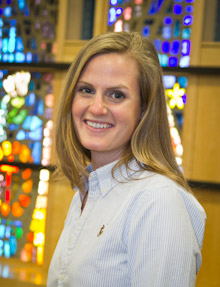
Teaching Race—A Sisyphean Task?
Teaching race is a boulder. And up the mountain I push it. When I teach race, I feel like Sisyphus because I never seem to get anywhere. The questions repeat and the anxieties recur each semester. It’s always the same: I know what parts of assigned texts will provoke students. I’m prepared for the discomfort, the tears, and the under-the-breath comments. I can even hear the conversations before they happen: White students indignantly protest Peggy McIntosh’s essay on white privilege: “But I had to earn what I have!” They respond to Bryan Massingale’s Racial Justice and the Catholic Church by accusing him of misunderstanding the true meaning of Catholic as universal because he writes that in America, “‘Catholic’ = ‘white.’”[1] And many angrily complain that James Cone “excludes” them from doing theology as they read God of the Oppressed.
Sisyphus, so the Greek myth goes, was consigned to an eternity of rolling a boulder up a mountain, only to have it roll to the bottom again. His unceasingly futile task was punishment from the gods for his deeds in life. The punishment became a compulsion, something he just had to do.
I am a white woman who teaches theology at a small, liberal arts, Catholic college with a predominantly white student body. I was once a student at mainly white institutions, taught by professors who, for the most part, were also white. Yet I was taught topics of race, racial injustice, black theology, and womanist theology. Now as a teacher, when I consider the culture of higher education, my own racialized identity—or maybe my under-racialized identity—as well as the identities of the vast majority of my students, I even better understand the importance of continuing this work.
 I use some of the same course designs and engage the same thinkers each semester. The books and ideas are not new to me. For the batches of students who enroll each semester, they dive into critically analyzing race and considering racism’s theological significance for the first time. The disconnect between student knowledge and experience-base as compared with faculty is all too easy to forget. Yet each fresh embarkation has such seemingly high stakes because of our desire to make a difference and because, for some of our students, we know this could be the only time they confront these topics. Sisyphus shows us work that isn’t victorious or triumphalistic, and, in this way, very akin to what we do as teachers.
I use some of the same course designs and engage the same thinkers each semester. The books and ideas are not new to me. For the batches of students who enroll each semester, they dive into critically analyzing race and considering racism’s theological significance for the first time. The disconnect between student knowledge and experience-base as compared with faculty is all too easy to forget. Yet each fresh embarkation has such seemingly high stakes because of our desire to make a difference and because, for some of our students, we know this could be the only time they confront these topics. Sisyphus shows us work that isn’t victorious or triumphalistic, and, in this way, very akin to what we do as teachers.
In his book Look! A White, philosopher George Yancy talks about refusing to make race “safe” for his white students. He advocates an approach that walks “on the edge of inviting the real possibility of being wounded and having one’s white narcissism and presumptuousness shattered.”[2]
Teaching race is neither absurd nor meaningless, as I’m sure fellow Sisypheans would agree, so the project of rolling the boulder up the mountain must go on, again and again, if we want to actualize the possibilities Yancy imagines. We can avoid a sense of futility by reminding ourselves of the challenge and disruption each new student in our midst faces when asked to confront racism. More profoundly, each time we start pushing that boulder we heave ourselves into the process of challenge and disruption that is teaching race.
Sisyphus received his boulder-up-the-mountain project as a punishment. And although my feminist commitments keep me from embracing the punitive aspects of the Sisyphean task, I do find it productive to read in the story a concept related to punishment—namely, penitence. In my faith tradition, Roman Catholicism, the sacrament of penance involves the active recognition of one’s sins and regret for those sins, as well as the commitment to do better, to heal wounds, and to reconcile division. Teaching race in theology for a new crop of students each semester is an avenue for me to express penitence: to acknowledge the sins of inherent racism, my participation in it and regret for it, and to commit anew to healing and reconciliation. I hope to enable students to do the same.
When I teach race in my theology classes, I am like Sisyphus not because the work is futile, but rather because the work is always ongoing, never fully “successful,” and—most importantly—because, in the spirit of penance, I am obligated to do so. All students leave my course at least exposed to the idea of race, and for others it might mean much more than that. After all, when I was an undergraduate someone was pushing that boulder and convinced me to jump in and help.